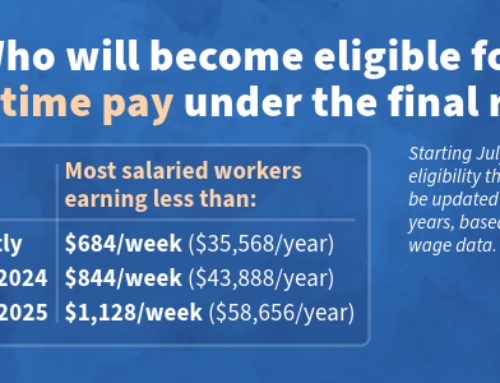By: Kim Smith, CPA, Tax Shareholder
Kim is a shareholder, a member of the JMF Tax Department and in charge of the JMF State and Local Tax (SALT) group. With over 20 years of experience, she assists clients with corporate, partnership, and individual income tax reporting as well as complex multi-state income and sales tax issues.
The talk of media outlets since the 2018 tax cuts were passed centered on lower tax rates and increased depreciation. However, in addition to these positive savings for companies, one significant change will potentially impact a company’s ability to provide perks or entertain their clients or customers. The Tax Cuts and Jobs Act of 2017 (“The Act”) made significant changes to meals and entertainment expenses.
Under prior law, Section 274 prohibited deductions for expenses related to meals, entertainment, amusement or recreational activities or facilities (including membership dues) unless such expenses were ordinary, necessary and directly related to the active conduct of the taxpayer’s trade or business. If a taxpayer could substantiate that these expenses were ordinary, necessary and directly related to its trade or business, the taxpayer could deduct up to 50% of such meal and entertainment (M&E) expenses. “Directly related” generally means involving an active discussion aimed at getting immediate revenue, with business as the principal purpose for the event, or occurring in a clear business setting.
The Act changed Section 274 by making all entertainment expenses, including facilities used for such activities, nondeductible, even if these expenses directly relate to, or are associated with, the conduct of business. Business meals and beverages however remain 50% deductible.
Therefore, sporting events, golf outings, fishing trips, hunting trips, concerts, theater tickets, golf club dues, etc. are entirely nondeductible even if a substantial and bona fide business discussion is associated with the activity. Food or beverages consumed at the events are still 50% deductible. There is still a requirement that the taxpayer must prove that business was conducted.
We suggest that taxpayers may need to modify the way that business entertainment expenses are tracked in their accounting system. For example, instead of posting the entire cost of the outing to “entertainment”, they should consider separating the food and beverage portion of the event into a different account. They will also need to educate employees who are submitting expenses to the company to submit receipts that clearly indicate the food and beverage portion of the activity.
The Act also states that an employer can still fully deduct expenses for goods, services or facilities that are treated as W-2 wages to the employee. The employer can also fully deduct expenses paid to reimburse an employee under a reimbursement or other expense allowance arrangement that can be treated as tax-free to the employer under the “accountable plan” rules.
Please note that no final IRS regulations have been issued yet so these are just our current interpretations of The Act as written by Congress. Please contact your JMF accountant if you have any questions.







Leave A Comment
You must be logged in to post a comment.